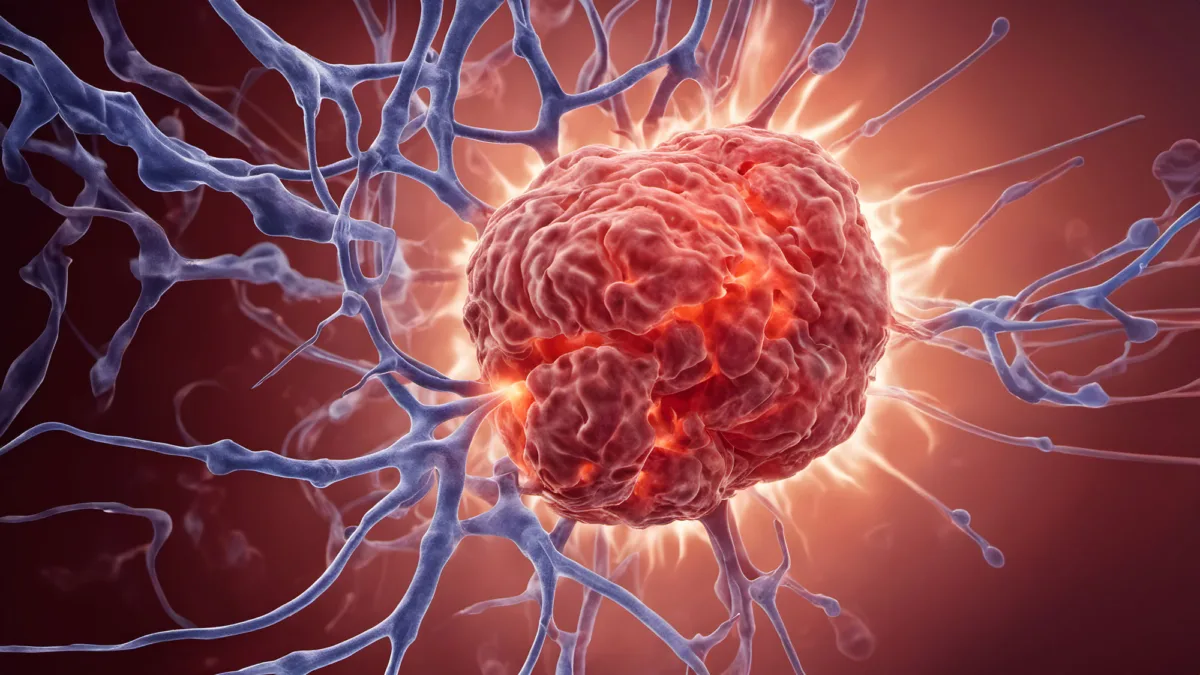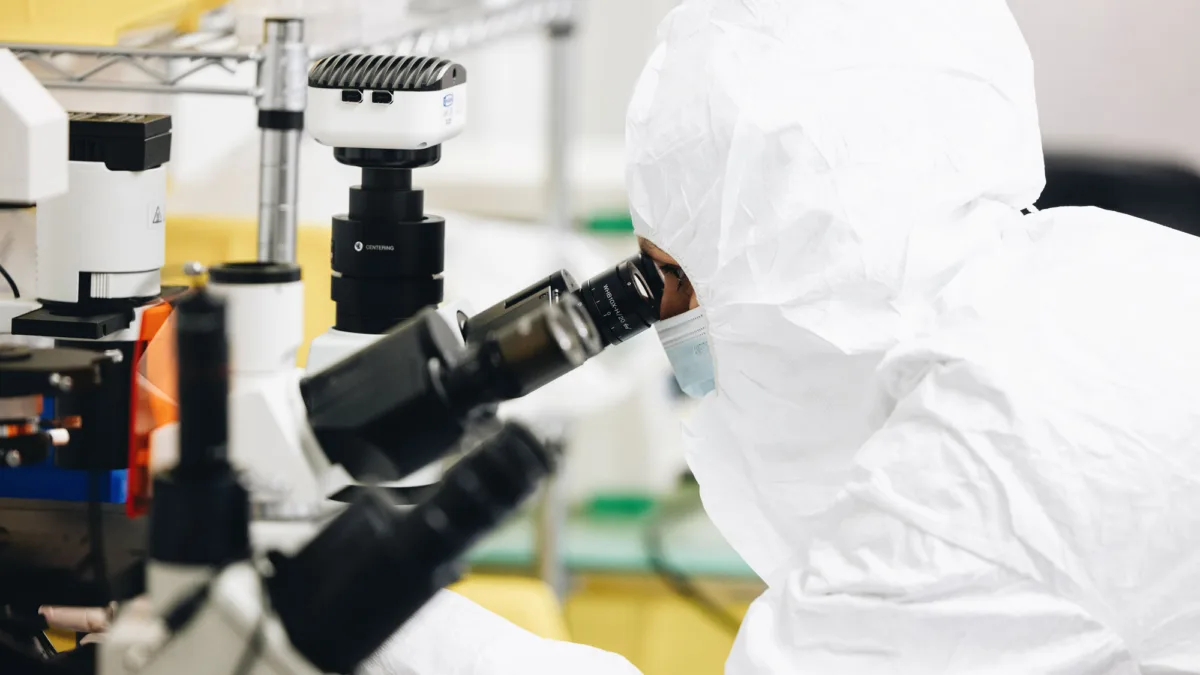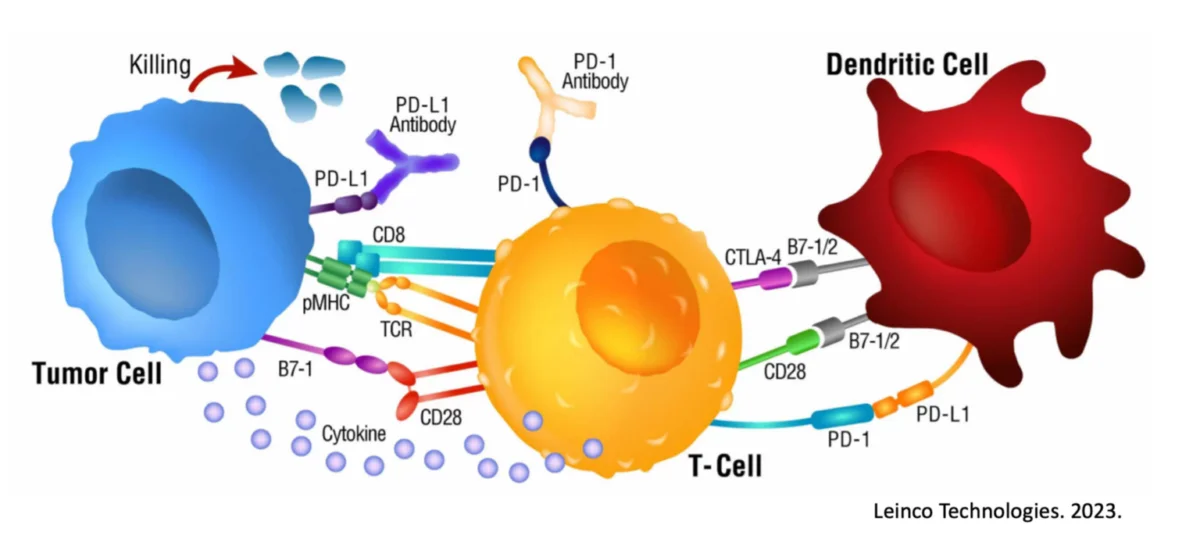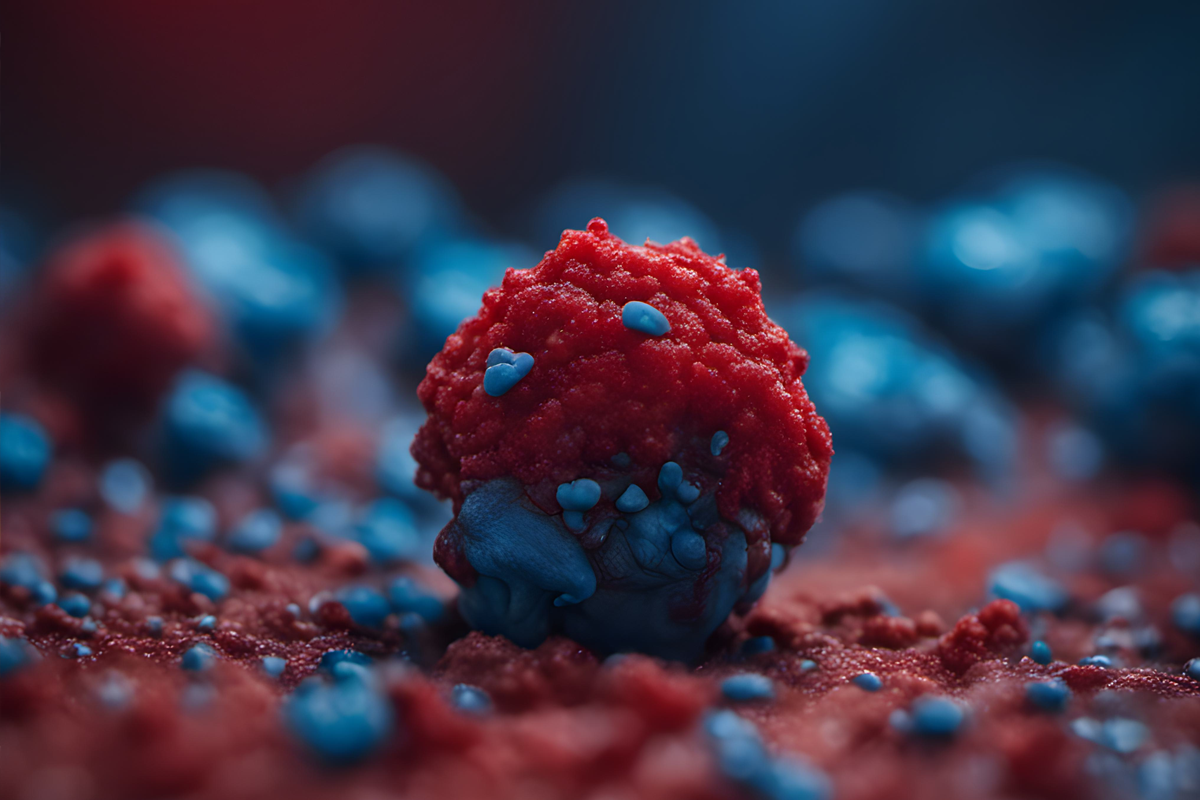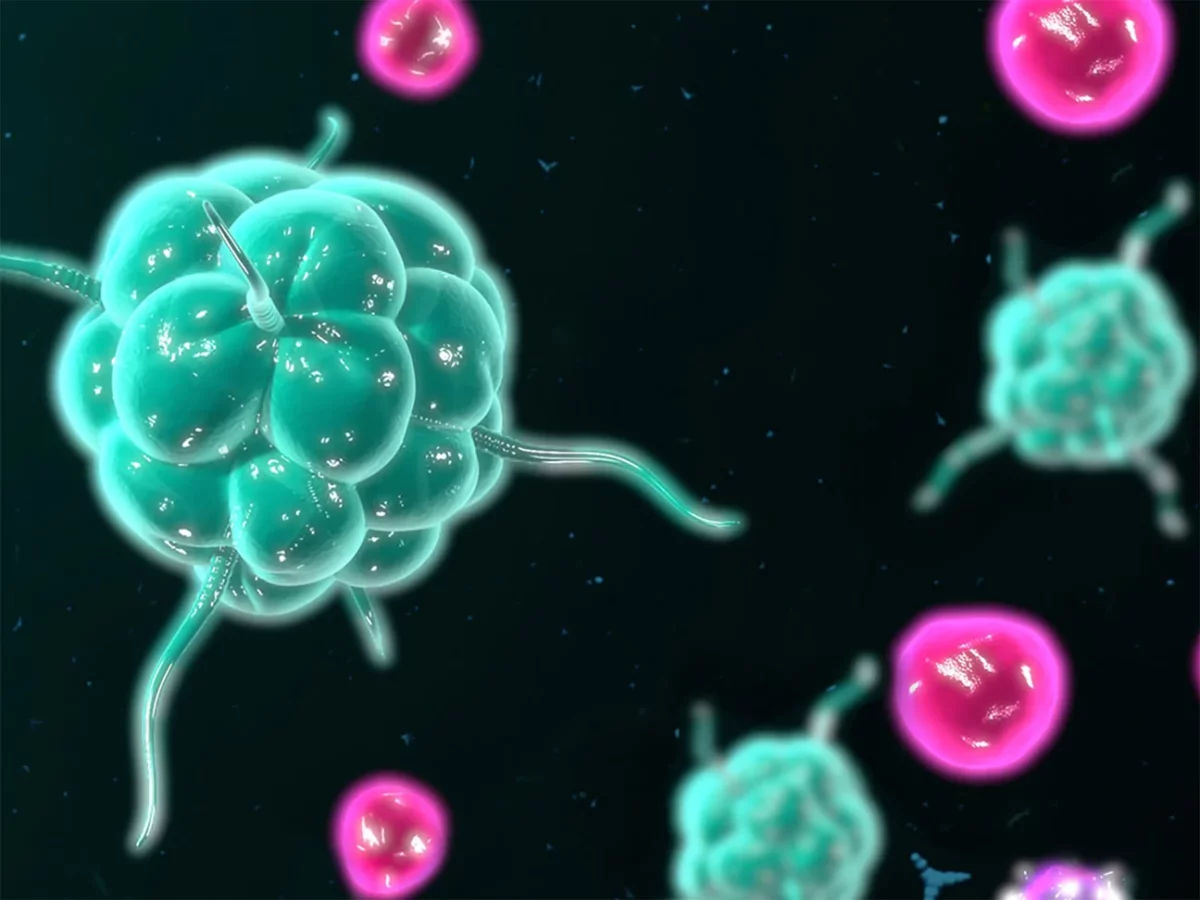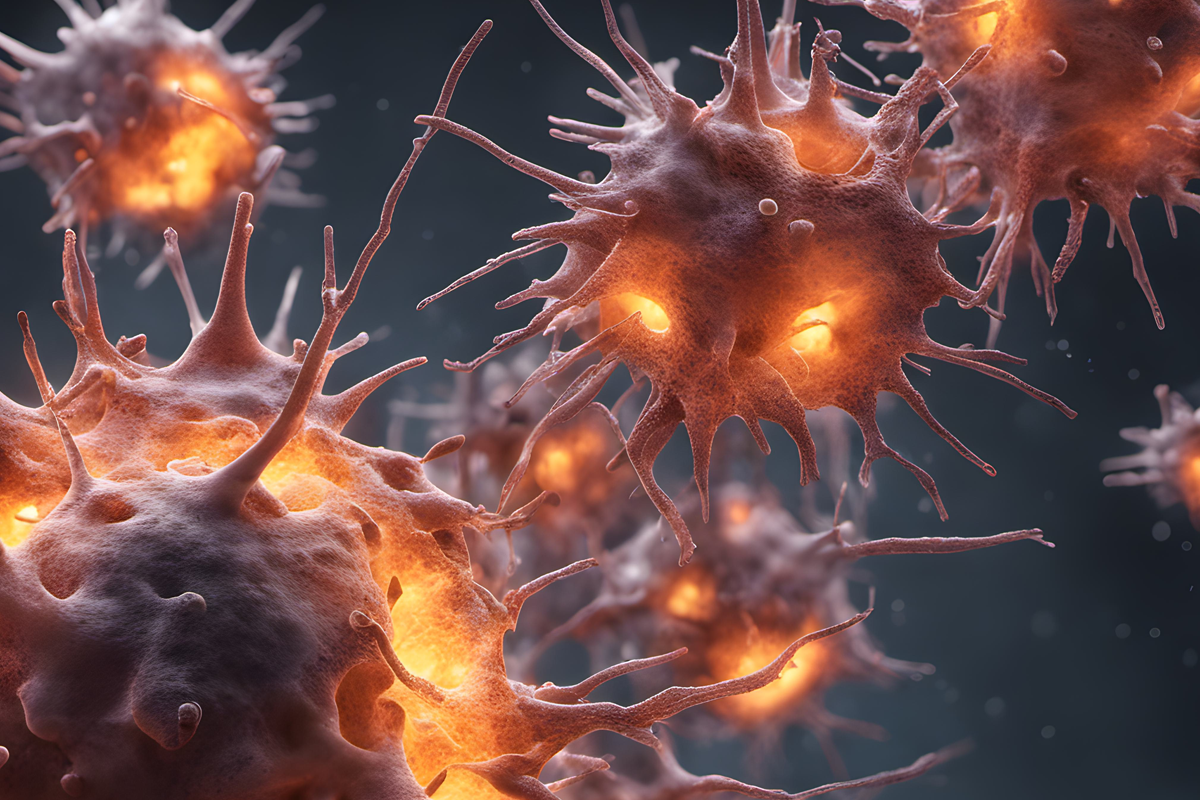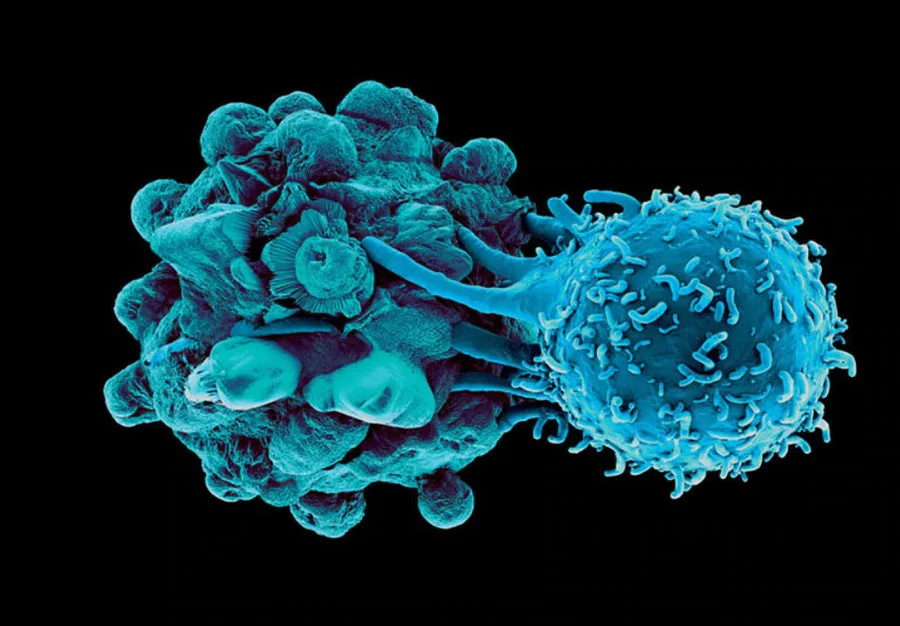Using Dendritic Cells to Fight Head and Neck Cancers
Head and Neck Cell Cancers (HNC) includes cancers within the oral cavity, sinonasal cavities, pharynx and larynx. HNC is the 6th most common cancer in the world with roughly 550,000 diagnoses each year.

Head and Neck Cancer Overview
Unfortunately, this frequently encountered cancer has a relatively high mortality rate and poor side effect profile associated with common treatments1.
While all cancer types at some level avoid detection by the Immune System, HNC excels at hiding2. HNC’s consistent ability to do so has been of great interest within Cancer Immunotherapy research. Fortunately, researchers have recently uncovered what they believe is the secret weapon of Head and Neck Cancers.
The Immune System’s Role in Fighting Cancer
As with any mutated cell in the body, the Immune System is responsible for detecting the mutations and eliminating the cell. This can be divided into three phases:
Immune response initiated by Dendritic Cells
Activation of specific T cells to target the cancer
Destruction of the cancer by the targeted T cells
To see this in action, see below!
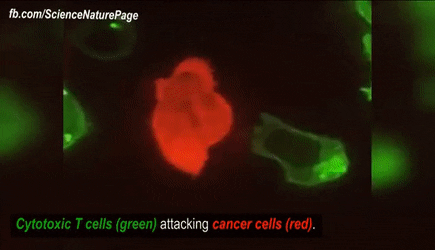
However, if the Immune System fails to detect the mutated cell, that single cell can rapidly grow and eventually turn into deadly tumors. And as mentioned above, Head and Neck Cancers are particularly adept at avoiding detection.
HNC Actively Evades the Immune System
Fortunately, the basis of Head and Neck Cancer’s superior ability appears to be finally known. Recent studies have identified that many HNCs secrete “Extracellular Vesicles” (or EVs) which are able to promote tumor survival and growth via a number of different mechanisms3.
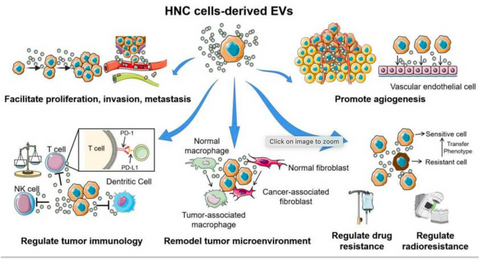
One these mechanisms is Head and Neck Cancer’s ability to prevent localized Dendritic Cells from maturing and therefore preventing an immune attack4,5. This is particularly bad news.
Oncology research has repeatedly demonstrated that disruptions in Dendritic Cell activity is one of the most effective strategies for tumors to avoid destruction and continue progression6,7.
Immunocine’s Dendritic Cell Treatment Can Fight HNC
Fortunately, Dendritic Cell Treatments that properly activate Dendritic Cells to attack Head and Neck Cancers can overcome this issue. To empower an HNC-targeted Immune Response, the Dendritic Cells need to be:
Cognizant of the cancerous threat
Loaded with the complete Cancer Antigen profile in the absence of HNC Extracellular Vesicles
Stimulated to initiate an TH1 response, which is specific to destroying mutated and virally infected cells
While this is simple list, Immunocine provides the only Dendritic Cell Treatment that accomplishes all three. Backed by peer-reviewed scientific publications, clinical trials, and patents, Immunocine’s cancer treatment unique process explains why our team has seen success in HNC patients, where other Immunotherapies have not.
To learn how Immunocine does this, we recommend reading this next!
If you or someone you know is currently dealing with an HNC diagnosis, contact us here to begin the process of outsmarting the tumor, launching an HNC-targeted immune response, and taking back control.
*Outside of cancer, the term Antigen can be used to describe any foreign molecules that would trigger an immune response. The Immunocine Science Team did not want to upset any of our fellow immunologists!
References
Johnson, D, et al. Head and neck squamous cell carcinoma. Nature Reviews Disease Primers. 2020.
Perri, F, et al. Immune response against head and neck cancer: biological mechanisms and implication on therapy. Transl Oncol. 2020.
Wang, X, et al. The roles of extracellular vesicles in the development, microenvironment, anticancer drug resistance, and therapy of head and neck squamous cell carcinoma. Exp & Clinical Cancer Research. 2021
Qu, X, et al. Extracellular vesicles in head and neck cancer: A potential new trend in diagnosis, prognosis, and treatment. Int J Mol Sci. 2020.
Paula Silva, E, et al. Extracellular vesicles cargo from head and neck cancer cell lines disrupt dendritic cell function and match plasma microRNAs. Nature Sci Reports. 2021.
Rivoltini, L, et al. Immunity to cancer: attack and escape in T lymphocyte-tumor cell interaction.Immunol Rev. 2002.
Y Jackson, A, et al. Tumor-mediated disruption of dendritic cell function: Inhibiting the MEK1/2-p44/42 axis restores IL-12 production and Th1-generation. Tumor Immunology. 2008.
READ THIS NEXT
The Unsung Heroes: Dendritic Cells in the Battle Against Pancreatic Cancer
Pancreatic cancer stands as one of the most formidable adversaries in the realm of oncology. This silent killer often evades early detection and metastasizes rapidly, rendering conventional treatments less effective1. However, amidst the daunting landscape of pancreatic cancer research, there shines a beacon of hope – dendritic cells. These unsung heroes of the immune system …
Read MoreInflammation in Cancer
In today’s world, chronic inflammation is an ever-present challenge linked to serious diseases, notably cancer. However, the paradox arises when we consider immunotherapy—a treatment harnessing inflammation to combat cancer. The key to understanding this complex interplay lies in precise “targeting” of the immune system’s arsenal. While chronic inflammation can fuel cancer, abandoning it entirely …
Read MoreUnraveling the Mystery of Cancer: A Journey through Basics and Advancements
Cancer, a word that evokes fear and uncertainty, has long been one of humanity’s most formidable adversaries. It is a complex group of diseases characterized by the uncontrollable growth and spread of abnormal cells in the body1. In this post, we will delve into the fundamentals of cancer, its interaction with the immune system, its …
Read More

